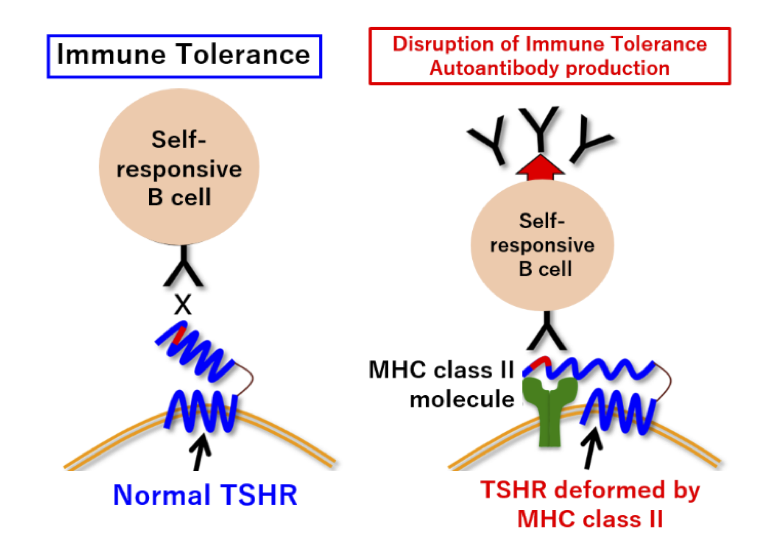Abrogation of self-tolerance by misfolded self-antigens complexed with MHC class II molecules (Arase Lab, in Science Advances)
Gravesʼ disease is an autoimmune disease in which autoantibodies against thyroid-stimulating hormone receptors (TSHRs) are produced. The research group of Hui Jin and Hisashi Arase (IFReC/RIMD, Osaka University) found that autoantibodies in patients with Gravesʼ disease preferentially recognize TSHRs complexed with MHC class II molecules of Gravesʼ disease risk alleles. This suggests that the aberrant TSHR transported by MHC class II molecules is the target of the autoantibodies produced in Gravesʼ disease.
Currently, the treatment of autoimmune diseases is limited to symptomatic treatment, which requires long-term medication. However, this study is expected to lead to the development of new therapeutic and preventive drugs that target the causes of autoimmune diseases.
This article is published online in Science Advances on March 5, 2022.
Title: “Abrogation of self-tolerance by misfolded self-antigens complexed with MHC class II molecules”
Authors: Hui Jin, Kazuki Kishida, Noriko Arase, Sumiko Matsuoka, Wataru Nakai, Masako Kohyama, Tadahiro Suenaga, Ken Yamamoto, Takehiko Sasazuki, and Hisashi Arase.
Links
- Home
- Achievement
- Research Activities
- Abrogation of self-tolerance by misfolded self-antigens complexed with MHC class II molecules (Arase Lab, in Science Advances)








